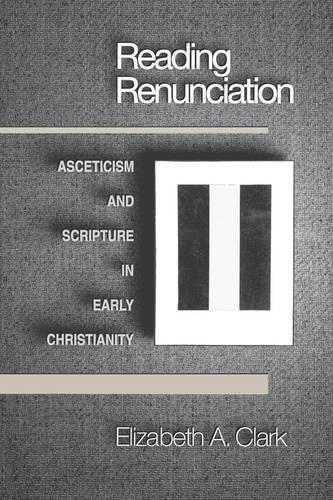
Reading Renunciation: Asceticism and Scripture in Early Christianity
(Paperback)
Publishing Details
Reading Renunciation: Asceticism and Scripture in Early Christianity
By (Author) Elizabeth A. Clark
Princeton University Press
Princeton University Press
19th October 1999
United States
Classifications
Professional and Scholarly
Non Fiction
Christian life and practice
248.47
Physical Properties
Paperback
360
Width 197mm, Height 254mm
624g
Description
A study of how asceticism was promoted through Biblical interpretation, Reading Renunciation uses contemporary literary theory to unravel the writing strategies of the early Christian authors. Not a general discussion of early Christian teachings on celibacy and marriage, the book is a close examination, in the author's words, of how "the Fathers' axiology of abstinence informed their interpretation of Scriptural texts and incited the production of ascetic meaning." Elizabeth Clark begins with a survey of scholarship concerning early Christian asceticism that is designed to orient the nonspecialist. Section Two is organized around potentially troubling issues posed by Old Testament texts that demanded skillful handling by ascetically inclined Christian exegetes. The third section, "Reading Paul," focuses on the hermeneutical problems raised by I Corinthians 7, and the Deutero-Pauline and Pastoral Epistles. Elizabeth Clark's remarkable work will be of interest to scholars of late antiquity, religion, literary theory, and history.
Reviews
"This is a magisterial work... Reading Renunciation will stand the test of scholarly time and remain an essential work in the long tradition of patristic exegesis."--Richard Valantasis, Journal of Religion "[A] scholarly, conscientious and provoking study"--Philip Rousseau, Journal of Ecclesiastical History
Author Bio
Elizabeth A. Clark is John Carlisle Kilgo Professor of Religion at Duke University and the author of several books, including The Origenist Controversy (Princeton). She is the past president of the American Academy of Religion, the American Society of Church History, and the North American Patristics Society. She is the coeditor of the Journal of Early Christian Studies.
